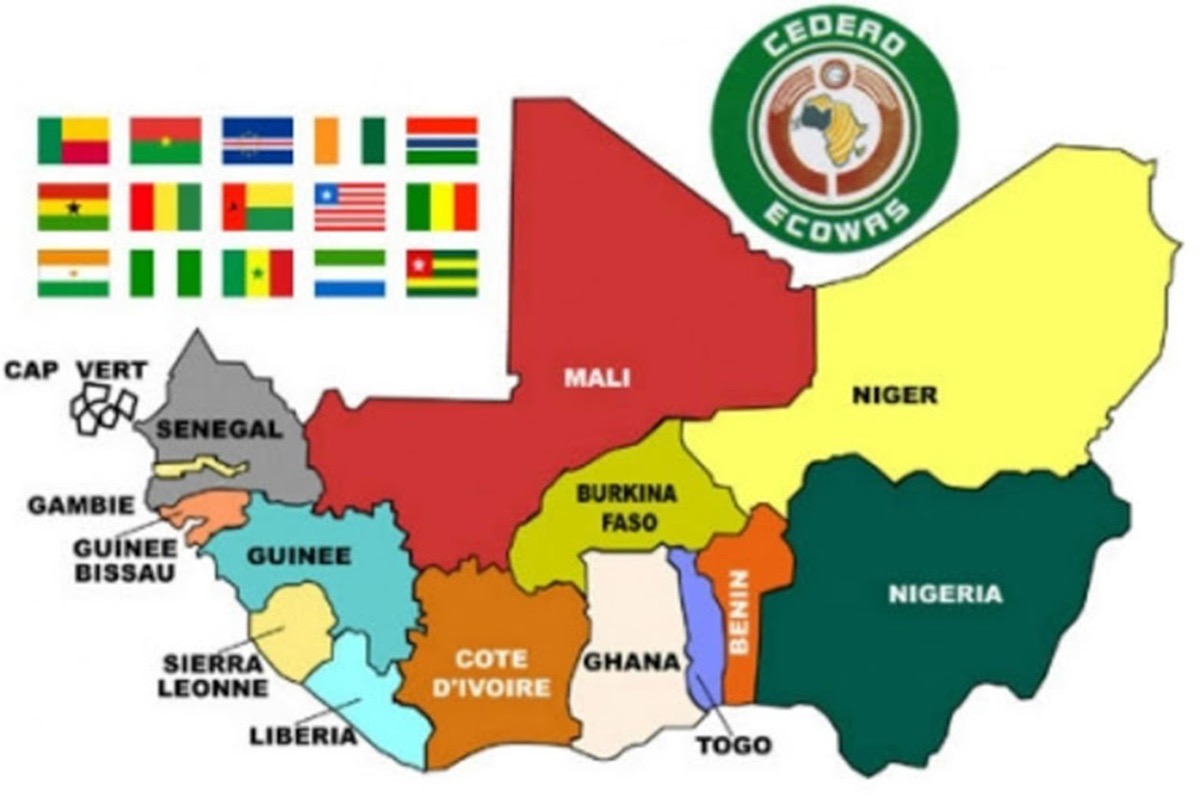The Economic Community of West African States (ECOWAS) has pledged to develop a regional resilience strategy with efficient coordination and effective early warning systems to tackle crisis within the region.
The President of the ECOWAS Commission, Dr Omar Touray, said that West Africa countries were faced with losses from disasters expected to increase over the next decade.
Touray was represented by Prof. Fatou Sarr, Commissioner, Human Development and Social Affairs ECOWAS, Said that the forum would enhance promoting transparent communication and collaboration, would certainly foster resilience and sustainable development across the region.
“The impact of climate change which is expected to result in more extreme weather situations such as heavy rains leading to devastating floods and drought which remains the most severe disasters in West Africa,’ ‘he said.
“I am delighted that after a retrospective analysis, the ECOWAS Commission in collaboration with the United Nations Development Programme (UNDP) will resolved to develop a resilience strategy for the region,” he said.
On her part, Ms. Elsie Attafuah, Resident Representative of UNDP Nigeria, expressed gratitude to the ECOWAS Commission and supporting countries, Sweden and Denmark, for their engagement and co-financing of the Resilience Strategy.
She said that with a projected population of over 900 million by 2050, including a majority under 25 years old, addressing the needs of the youthful population requires innovative approaches.
She expressed confidence in the resilience and determination of the people of West Africa to overcome these challenges through collaborative efforts and innovative solutions.
Mr Mustapha Ahmed, Director-General, National Emergency Management Agency (NEMA), made this known at Consultation Workshop for the Stakeholders from the region on Tuesday in Abuja.
The workshop organised by the United Nations Development Programme (UNDP) Nigeria, brought together participants from ECOWAS Member States and the Federal Government of Nigeria.
Ahmed said ECOWAS member states have experienced series of disasters, crisis and conflict that have posed threats to normal life, the means of livelihood of the people and sustainable economic growth and development.
“There is no doubt that there is a compelling need to develop a regional resilience strategy with efficient coordination and effective early warning systems for West Africa.
“This will guide anticipatory actions to support the deployment of qualitative and quantitative data for risk-informed decision to guide development pprogramme implementation.
“It is imperative for the region to leverage on its rich natural and human capital for smart investments to meet up with its future aspiration.
“Nigeria on its part has strived hard to weather the storm in the face of extreme weather events coupled with conflicts over dwindling land and water resources powered by climate change phenomena and demographic dynamics, ” he said.
According to him, the predominant disaster risk profile of West Africa has significantly posed a threat to region’s efforts in meeting crucial global and continental initiatives including the Sustainable Development Goals (SDGs) 2030.
Ahmed said in an effort to further proffer solution, ECOWAS came with initiatives such as the Sendai Framework for Disaster Risk Reduction (SFDRR) 2015-2030; and the African Agenda 2060, included the African Union Program of Action (AUC-PoA) and the African Continental Free Trade Area (AfCFTA) treaty.
According to him, subsistence farming, shifting cultivation and pastoralism based on cross boundary seasonal movement of livestock of the past have become unsustainable in the face exponential population growth and dwindling land resources.
The situation, NEMA Boss said had fuelled conflict between occupation groups that hitherto complemented one another.
“It has driven banditry, kidnapping for ransom and decline in rural productivity.
“In 2022, Nigeria experienced its worst recorded flood disaster. The extent of devastation and destruction of property as well as loss of lives and means of livelihood were unprecedented.
” A total 665 deaths were reported while 3,181 people were injured, 4,476,867 people were affected out of which 2,437,411 persons were displaced from their homes.
On the importance of the forum, Ahmed said Nigeria stands to benefit from the initiative of developing the West African Resilience Strategy which would provide guidance in addressing the destructive impacts of the multi-dimensional risks in the country.
The workshop is also expected to be a successful and fruitful endeavor that will make a meaningful difference in the lives of millions across the region.
The workshop provides a platform for dialogue, collaboration, and innovation to refine the analysis, identify synergies, and prioritise components of the strategy that will have the greatest impact on resilience-building efforts.
The goal is to chart a path towards a more resilient West Africa, where individuals, communities, and states can better prepare, manage, and recover from crises.




























